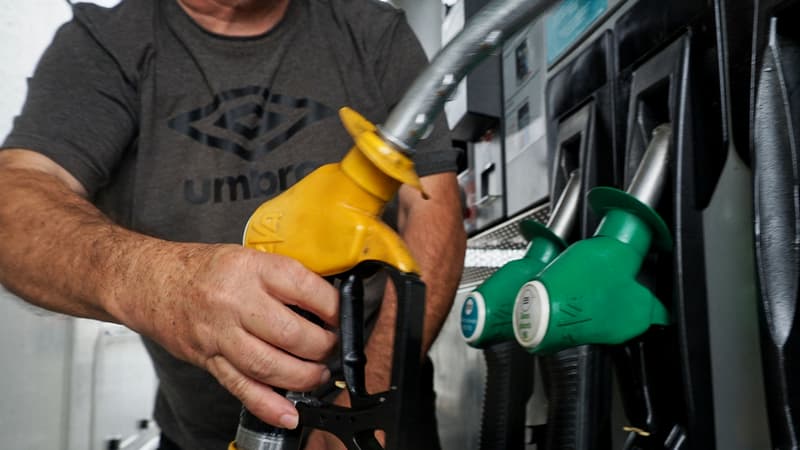After two years of strong turbulence in fuel prices, will 2024 mark a respite? Given the still uncertain international context and questions about the global economy, nothing is less certain.
Although prices at the pump increased slowly at the end of 2023, they remain at relatively low levels over the last period, compared to peaks close to 2 euros per liter in spring 2023 and price records well above 2 euros after the Russian crisis. Invasion of Ukraine in February 2022.
“We continue to suffer from the drop in the barrel that began in October, with prices at the pump that have fallen in the last three months,” explains Francis Pousse, president of the union’s fuel and new energy distributors section, on BFMTV.
Have these prices ranging between 1.70 and 1.80 euros per liter become the new norm? For the record, in 2021 they were around 1.50 euros per liter.
Although we can expect some stabilization of prices in the short term, it remains impossible to anticipate the evolution of fuel prices in the long term.
“History shows us that it only takes a big event tomorrow for the barrel to suddenly rise between 10 and 20 dollars,” recalls Francis Pousse.
However, the recent international context has not driven an increase in prices. Recent events in the Middle East have had a limited effect on the price of a barrel of oil, and investors are also concerned about some slowdown in global growth and, in particular, in the largest economy, China. This pessimism seems to have contained the rise in the price of crude oil.
Record dividends… ending up at the pump?
This price, which stood at 1.78 euros per liter of 95-E10 unleaded gasoline in the last week of December, remains relatively high compared to 2021. To explain the high prices at service stations, some cite dividends record, estimated at 100 billion dollars, that the oil companies will pay their shareholders, after the colossal profits recorded in 2023. Enough to relaunch the tax plans on super profits, as the elected officials of Rebellious France tweeted in reaction to this new dividend record, after 2022.
Defense of the oil companies: it is not thanks to prices at the pump that they obtain their margins, but rather through extraction and refining. According to IFPEN figures, refining costs have been reduced by half since the month between August and December, going from 122 euros per ton to 66 euros. Enough so as not to weigh too much on the final price in the coming weeks.
A pause in operations at cost
In this floating context, can motorists expect a new boost? After the State applied reductions in fuel prices in 2022, fuel control was implemented last year, more targeted at households in need. But with fuel prices rising at the start of the school year, the government encouraged large retailers to practice cost-price operations. Operations that ended with the transition to the new year.
“For now it’s over because the current price, which is still very high if we look back a few years, is still at its lowest level since the summer of last year, with a barrel of oil around $75. “At the moment, (the return of operations at cost price) is not foreseen, but there will be again,” explained Dominique Schelcher, general director of Système U.
But at what price level could we implement this type of operations again?
“The government’s mobilization to encourage us occurred at a time when the price per liter was approaching 2 euros and, therefore, the threshold is approximately there. I remind you that for us (large retailers), fuel is a loss leader, so we don’t “We earn a lot with it, from 1 to 2 cents per liter, with Leclerc we are the distributor that sells the cheapest fuel in France, much cheaper than Total and therefore the margin maneuver remains limited,” continued Dominique Schelcher.
For his part, Francis Pousse puts the effect of these operations on prices at the pump into perspective: “The cost price operation of supermarkets has only had a marginal effect, first of all it is the barrel that has fallen and also our euro, which has appreciated a little against the dollar.”
Especially since these operations tend to destabilize stations outside mass distribution that cannot afford to practice them, Francis Pousse warned last October.
Source: BFM TV


